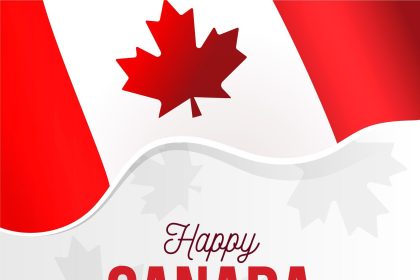One of Canada‘s unique and attractive programs for applicants is the Atlantic Immigration Program or AIP (Atlantic Immigration Program). The purpose of this program is to attract a skilled workforce for four of the five Atlantic Canadian provinces (Nova Scotia, New Brunswick, Prince Edward Island, and Newfoundland and Labrador).
The main conditions of this Canadian immigration program are:
* Job offer from the employer
* Having at least one year of work experience
* Having at least a high school diploma or equivalent
* Having an accommodation plan to settle in the area
If the applicants meet the mentioned conditions, they can contact the Homa Immigration Institute and take the necessary steps to receive advice, check the conditions and sign a contract for this immigration program. In the rest of the article, we intend to examine the conditions, history, goals of this program, different categories of workforce, job requirements, work experience, etc. in a specialized manner. We pay comprehensively. Stay with us until the end of the article.
History and purpose of Atlantic Canada’s immigration program
One of the main strategies of every country and every government is to provide skilled labor and eliminate its shortage. As a result, in 2017, Canada introduced a new immigration program called Atlantic for applicants to immigrate to this country. The main goal of this program, as we said, was to provide the required workforce and strengthen the Canadian economy in the Atlantic provinces. The cooperation of local and government employers in the Atlantic provinces has promoted this program. International students who are studying in this country can get a job in this country after completing their studies.
General conditions of the Atlantic Canada immigration program
Applicants who intend to immigrate to Canada through the Atlantic immigration program should first consult with people who have up-to-date and specialized information in this field. This case is considered one of the most important points in the migration path; Because it can bring people out of delusion, rumors, dreaming, etc. and make them face reality. Also, since the conditions undergo many changes every year, the applicants should have the necessary knowledge of the latest conditions and rules of this method.
Canada’s attractive immigration program has 3 different categories, which are:
- Canada’s skilled workforce: This category is for applicants who have high skills in their work and can receive a job offer from a reputable employer in the Atlantic provinces of Canada.
- Canada’s semi-skilled workforce The second category is specific to the workforce who are semi-skilled and can receive a job offer from a reputable local employer.
- The third category of international graduates is for international graduates who intend to convert their study visa into a work visa by finding a job in Canada.
If you are a member of one of the three mentioned categories, you can increase the information about this method and finally enter Canada after passing the process.
Job requirements for the Atlantic immigration program
The job requirements that applicants must have to participate in this program are:
- A valid job offer from a Canadian employer, for one of the Atlantic provinces on a full-time or seasonal basis
- The job skill level proposed to the applicant, which must be at one of the levels A, B, NOC 0 or C.
Work experience of Atlantic immigration program applicants
Another condition that applicants for immigrating to Canada through this program have is work experience, which is divided into three categories.
First category: Skilled workforce with at least one year of work experience in the job related to the job offer
Second category: semi-skilled workforce with work experience related to the job proposed by the employer
Third category: International graduates who do not need work experience, but must have studied in at least one of the accredited educational institutions in the Atlantic provinces.
Atlantic immigration program language and education requirements
One of the main concerns of applicants to immigrate to Canada is the requirement of a language certificate. In this program, applicants must have a minimum language level of one of the CLB levels.
In general, the language level for some jobs can be categorized as follows:
1. For managerial, professional and specialized jobs (skill level 0, A, B):**- minimum CLB level 5. 2.
2- For semi-skilled and unskilled jobs (skill level C, D):** – minimum level of CLB 4.
Note that these levels mean having specific scores in language tests such as IELTS or CELPIP for English and TEF for French.
The level of CLB 5 in the IELTS test is based on the following scores:
- Listening: 5.0
- Reading: 4.0
- Writing: 5.0
- Speaking: 5.0
- And for CLB level 4:
- Listening: 4.5
- Reading: 3.5
- Writing: 4.0
- Speaking: 4.0
In addition to language, applicants must submit minimum educational qualifications to the Canadian embassy to obtain a visa. Note that the completeness of the documents, their translation and presentation of employment documents are among the most important documents required for the Canadian Embassy.
Applicants’ education for the Atlantic Canada immigration program is as follows:
In the Atlantic Canada immigration program, job classification is based on the TEER (Training, Education, Experience, and Responsibilities) system.
Individuals with a TEER level job offer in category 0 or 1 must have a high school diploma.
This degree can be from one of the Canadian schools or its equivalent outside of Canada.
People who have a job offer in the TEER 3, 2, 4 category must have a diploma or higher education.
Note: If your diploma or bachelor’s degree is not from Canada, you can do the equivalence of your documents.
Note, the TEER system replaces the previous NOC (National Occupational Classification) system, which categorizes jobs into three levels of required education, experience, and responsibilities.
The categories of TEER jobs are:
1. TEER 0: Management jobs (such as restaurant managers or mine managers).
2. TEER 1: Professional occupations that typically require a college degree (such as doctors, dentists, or architects).
3. TEER 2: Technical occupations and skilled workers requiring at least 2 years of college education or apprenticeship, or occupations requiring supervisory or safety responsibilities (such as police officers and firefighters).
4. TEER 3: technical occupations and skilled workers that require less than 2 years of university education or apprenticeship; or require more than 6 months of on-the-job training.
5. TEER 4: Intermediate occupations that typically require a high school diploma and/or several weeks of specific on-the-job training (such as industrial butchers, long-haul truck drivers, or food and beverage servers).
Documents required to obtain an Atlantic work visa
Applicants for immigration with the Atlantic program must submit documents including:
- degree
- Language test results
- Work experience certificate and health certificate
- Proof of financial ability to meet the needs of yourself and your family in Canada
- Completing application forms
- Presenting a job offer received from a Canadian employer
Atlantic Canada visa application process
Immigration applicants to obtain an Atlantic visa must complete the application process carefully and in order. Of course, it is recommended to consult with an immigration lawyer or expert advisors in order to obtain a visa, so that you don’t face any problems when submitting your application to the embassy, including the lack of documents.
- Getting a job offer from a reputable employer in the Atlantic provinces
- Completing visa application forms and providing translated identity documents
- Submitting the application to the intended province in the Atlantic for initial review
- Obtaining approval from the province from the province and sending it to the federal government of Canada
- Examination of the application by the federal government to approve and issue a visa or reject the application
If one of the items mentioned in your immigration file submitted to Safrat is not available, you will be rejected by the embassy and you must correct the defects in your documents.


Application processing time for the Atlantic Canada immigration program
One of the most common questions asked by applicants for immigration through the Atlantic Canada program is how long it takes to process the case. Because this period of time determines the speed of the applicants’ work. Note that several factors such as new Canadian laws, political factors of the country, conditions, etc. can affect the speed of your work. In general, the time to do the work can be presented in the form of the following table.
| Program details | Highly skilled applicants | Intermediate applicants with skills | International graduate applicants | Description |
| Job offer validation | 1 month | 1 month | 1 month | Examining a job offer with a Canadian employer |
| Approval of settlement plan | 14 to 30 days | 14 to 30 days | 14 to 30 days | Examining the plan and approving it |
| Provincial approval | 1 to 2 months | 1 to 2 months | 1 to 2 months | Provincial approval from Canada |
| Request for permanent residence | 6 months to 1 year | 6 months to 1 year | 6 months to 1 year | IRCC processing time for permanent residence application |
Benefits of Canada’s new immigration program
In recent years, this immigration program has become one of the most popular ways to immigrate to Canada. Some of the main advantages of the Atlantic Canada immigration program are:
- Faster review of the application by the Canadian federal and provincial governments than other immigration methods
- Atlantic Canada’s support for immigrants to help them adapt to the new environment and find work and home in the Atlantic provinces
- There are numerous job opportunities for professionals and workers in Atlantic
- High salaries for specialized jobs
- Living in a country with economic stability
- Clean weather
Challenges and problems of immigration through Atlantic Canada
Although the Atlantic immigration program has many benefits for the applicants, it has challenges in the immigration process, and the applicants should be aware of these problems and challenges before attempting to immigrate. Some of these challenges are:
- Providing housing and finding a suitable house in the Atlantic provinces is one of the challenges facing the applicants, because it is one of the challenges facing people in the remote areas of the Atlantic provinces.
- There are some obstacles in finding a job for different disciplines in the Atlantic provinces of Canada
- Adapting to the new culture for immigration applicants, especially adapting to the language and culture
- Away from family and homesickness
Despite all these things, you can still live in this country easily without economic worries.
You can also have exciting trips to the Canadian mountains with very little money.
final word
The Atlantic Canada immigration program is one of the most attractive programs for job seekers abroad. These provinces, in addition to peace and wonderful weather, have economic stability and good social welfare. According to the conditions and documents mentioned in this article, applicants and immigrants can take the necessary steps to prepare the documents and submit them to the embassy to obtain this type of visa by checking their conditions by consultants and experts. In addition, the Atlantic provinces have many job opportunities, which has made it easier to get a job offer from its employers.
Frequently asked questions
1- What is the main goal of the Atlantic Canada immigration program?
Attracting skilled immigrants and compensating for the lack of labor in Canada, as well as helping economic growth, are the main goals of this immigration program
2- Who are eligible to receive a job offer from the employer in the Atlantic provinces?
People who have high, medium and low skills in their job and have at least one year of work experience in their job field.
3- Is it possible to participate in this program without a job offer?
no Applicants who have a job offer
RCO NEWS

















